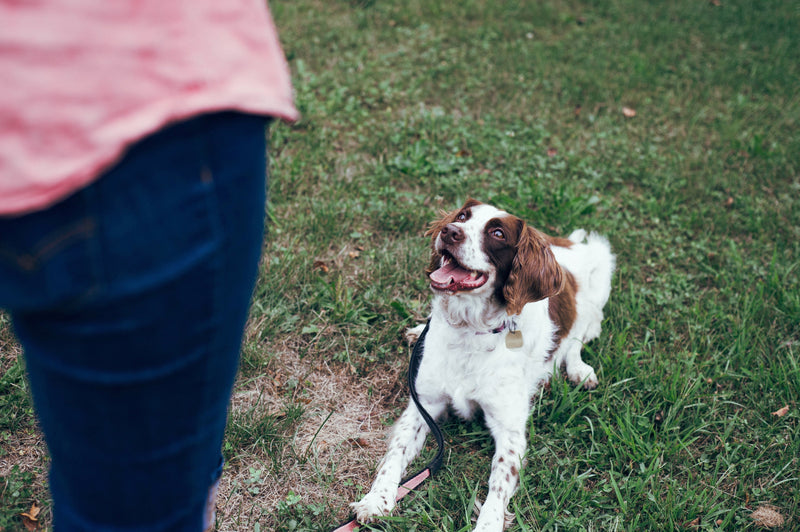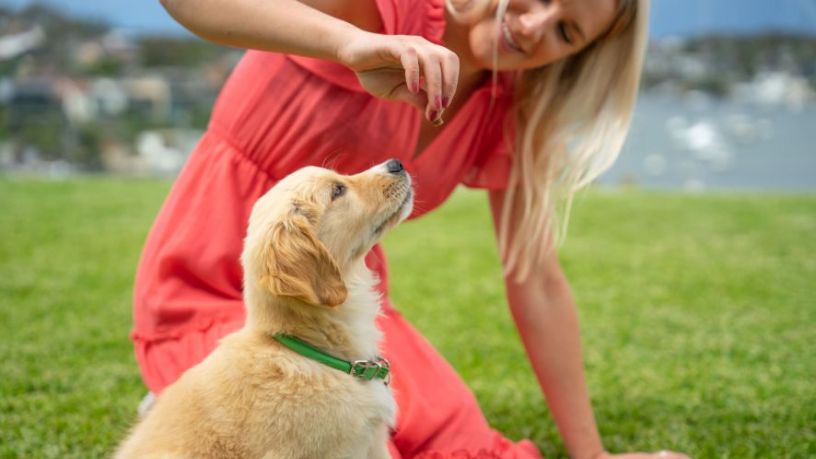
Dog Reactivity Towards Visitors: Addressing and Easing It
Share
When it comes to dog reactivity towards visitors, many pet owners, especially those who are health-conscious, may find themselves puzzled and concerned. Imagine eagerly inviting friends over for a relaxed brunch, only to be interrupted by incessant barking and unpredictable pacing from your furry companion. Recognizing that your dog's reactions stem from instinctual responses, stress, or fear is critical.
For pet owners, the distinction between normal protective behavior and excessive reactivity is crucial. Reactivity, when not addressed, can escalate into more aggressive behavior or lead to unnecessary stress for your beloved pet. Understanding what's behind these reactions will allow you to create a safe environment for both your dog and your guests.

Why Is My Dog Reactive?
Understanding why dogs react to visitors is essential for finding the right solutions. Dog reactivity towards visitors can result from various factors, such as lack of socialization, past trauma, or even genetic predispositions. Often, it manifests as barking, lunging, or defensive behavior to unfamiliar faces.
Many dog breeds are inherently wary of unfamiliar people due to their breeding history and protective instincts. However, environmental factors like exposure to welcoming experiences or training can significantly affect a dog's temperament. Our friends at AKC have discussed the importance of nurturing positive associations as part of dog behavior training.
Strategies to Manage Dog Reactivity
Understanding Canine Body Language
Before introducing your dog to strangers, learning to interpret their body language is a significant step. A dog's posture, tail movement, and ear positioning can give you insight into their emotional state. Recognizing signs of stress or anxiety can prevent negative interactions ahead of time. For instance, a trained eye might spot subtle cues indicating that your dog feels threatened or nervous, allowing you to manage the situation calmly.
Gradual Exposure and Socialization
Socializing your dog with various people regularly can help reduce reactivity towards strangers. Begin by introducing them to new people in controlled environments, like dog parks or during quiet walks where you can maintain a positive atmosphere. By gradually increasing exposure, you offer your dog the chance to form new, positive associations with different human interactions.
A supportive step could be to enroll in group training sessions or doggy daycares, where exposure to strangers is routine. Such practices have proven to improve sociable behavior in many dogs.
Technical Training and Intervention Techniques
Positive Reinforcement
Employing positive reinforcement techniques can make a huge impact. Reward your dog for remaining calm or displaying non-reactive behavior when visitors arrive. This technique not only helps in diminishing fear but also fosters trust between you and your furry friend.
Offering treats, praise, and affection during or following positive interactions can serve as an effective tool for behavioral transformation. To further deepen your understanding of this method, delving into resources like dog training methods guide can be exceptionally beneficial.
Seeking Professional Assistance
Sometimes, the level of a dog's reactivity goes beyond what basic training can resolve. In these scenarios, hiring a professional dog trainer or behaviorist to assess the specific needs of your pet might be necessary. Through a tailored approach, these experts can equip you with specialized strategies and tools to address severe cases.
For more advanced techniques and professional insights, guidance from veterinarians or certified trainers at facilities like Best Friends Animal Society can offer invaluable resources.
The Health and Safety of All
Your responsibility as a health-conscious pet owner stretches beyond maintaining physical wellness; ensuring your pet's environments are mentally and emotionally enriching is equally vital. Take a proactive role in managing dog reactivity towards visitors to prevent any fear-induced reactions and anxiety for your pet.
Whether your journey involves learning more about canine behavior or actively participating in classes, the steps you take today will lead to a harmoniously integrated pet into your social life. By prioritizing their well-being, you'll protect not just your guests and beloved pet, but yourself from unnecessary distress.

Frequently Asked Questions
Why does my dog react aggressively towards visitors?
Aggressive reactions to visitors can stem from fear, lack of socialization, or protective instincts. Addressing these behaviors with positive reinforcement and training can gradually ease aggression.
How can I socialize an older dog?
Socializing an older dog requires patience and persistence. Start with controlled interactions in calm environments, and gradually increase exposure to various people and settings to build new associations.
Are there any specific breeds more prone to reactivity?
Yes, some breeds, often those known for guarding and protective instincts, may display higher levels of reactivity. However, with consistent training and socialization, these behaviors can be managed effectively.
This article contains affiliate links. We may earn a commission at no extra cost to you.
